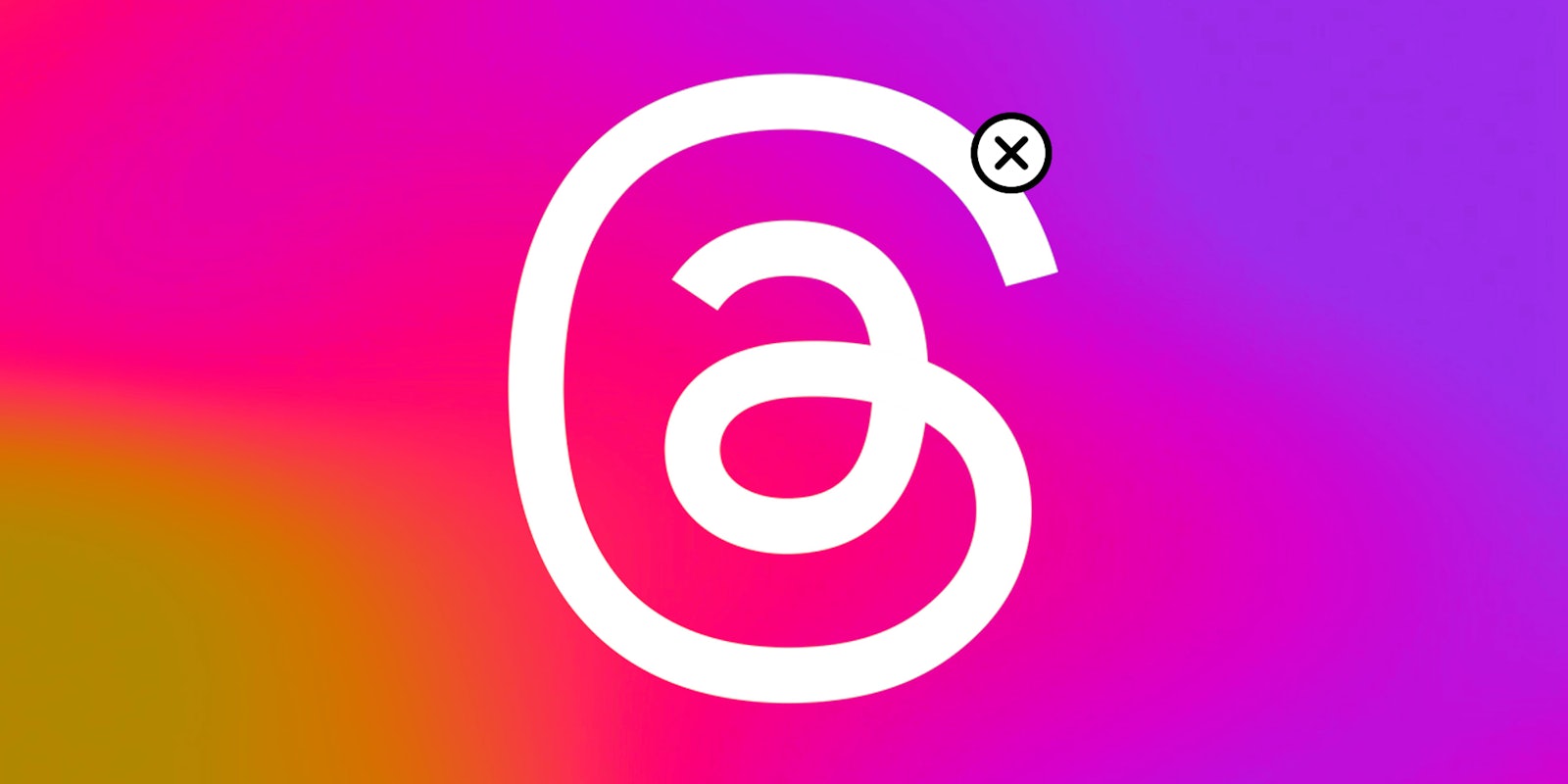Meta’s new Twitter alternative, Threads, attracted 10 million signups within seven hours of launch. It benefits from being an Instagram offshoot, making it easy to start an account and connect with existing contacts.
But if you try Threads and don’t like the experience, you’re faced with an awkward problem: You can’t delete your account without deleting your Instagram as well. The most you can do is “deactivate” it.
Threads is already a frontrunner in the race to replace Twitter. Other competing apps are still too obscure (Spill, Hive), too complicated (Mastodon) or suffer from barriers to entry (Bluesky’s limited invite codes). Most people just want something that’s easy to use.
Plus, as a Facebook/Instagram offshoot, Threads is more likely to attract brands and celebrities with large follower counts.
That being said, Threads is also facing criticism from several angles. Tech-savvy detractors are concerned about Meta collecting their data (posting habits, social circles, profile information), and many communities are put off by the difficulty of creating casual, pseudonymous accounts. Twitter is also full of complaints about Threads’ algorithmic, non-chronological timeline:
It makes sense that some new users would want to delete their accounts soon after signing up for the platform.
Why can’t you delete your Threads profile?
In the words of Instagram’s help page, “Your Threads profile is part of your Instagram account, and may be deleted at any time by deleting your Instagram account.”
So it’s not actually a separate platform. It’s a text-based subsection of Instagram. Threads users can delete individual posts, but they can’t delete their profile or Threads data unless they also delete the connected Instagram account. The only other options are deactivation (technically a temporary measure) or setting your Threads profile to private.
Some users may not see much of a distinction here, just deactivating their profiles and moving on. But there’s also some real pushback against the idea of an un-deletable profile—particularly in the context of Meta, which has already faced a ton of criticism for its data collection strategies.



 (@aurahack)
(@aurahack) 